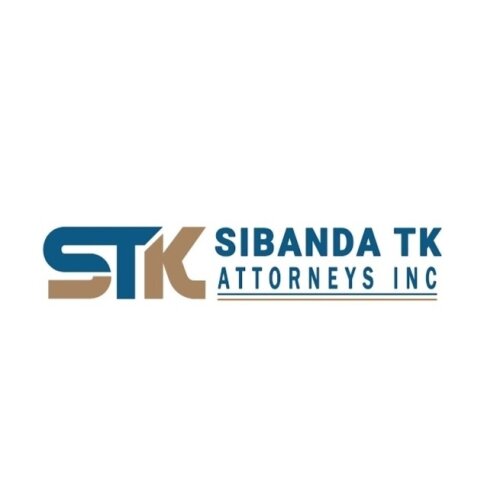Best Housing, Construction & Development Lawyers in Kwamhlanga
Share your needs with us, get contacted by law firms.
Free. Takes 2 min.
Free Guide to Hiring a Real Estate Lawyer
List of the best lawyers in Kwamhlanga, South Africa
About Housing, Construction & Development Law in Kwamhlanga, South Africa
Housing, Construction, and Development law in Kwamhlanga, a vibrant region within Mpumalanga Province, governs the building, sale, rental, and management of property. This area of law addresses the legal framework for developing residential, commercial, and industrial properties, including the acquisition of land, planning approvals, building compliance, dispute resolution, and tenant protection. In Kwamhlanga, these laws are particularly important because of rapid urban development, expanding housing projects, and increased infrastructure needs, making compliance and legal awareness crucial for residents, developers, and property owners.
Why You May Need a Lawyer
Engaging with housing, construction, and development presents a variety of legal challenges. You may need a lawyer to:
- Interpret and explain property sale or lease agreements.
- Resolve landlord-tenant disputes or evictions.
- Address building defects or construction delays.
- Handle planning permission or zoning issues with the municipality.
- Navigate disputes related to community schemes (such as body corporates or homeowners’ associations).
- Assist with land acquisition and title deed registrations.
- Advise on compliance with the National Building Regulations and other safety standards.
- Represent you in litigation or mediation involving property matters.
- Resolve boundary or neighbor disputes regarding construction or land usage.
- Assist in cases of government expropriation or restitution claims.
Local Laws Overview
Several laws and regulations influence housing, construction, and development in Kwamhlanga:
- National Building Regulations and Building Standards Act: Sets the standards for construction safety and compliance, outlining requirements for new buildings and renovations.
- Spatial Planning and Land Use Management Act (SPLUMA): Governs how land must be planned, zoned, and developed, working alongside municipal by-laws.
- Mpumalanga Provincial and Local By-laws: The Thembisile Hani Local Municipality, under which Kwamhlanga falls, enforces its own regulations for permits, construction approval, and urban planning.
- Rental Housing Act and Consumer Protection Act: Protect tenants and buyers, ensuring fair contracts and outlining dispute resolution mechanisms.
- Sectional Titles Act and Community Schemes Ombud Service Act: Important for those living in complexes or estates, these laws govern the management of shared properties and communal living.
- Deeds Registries Act: Provides for the registration of property transactions to guarantee legal ownership and prevent fraud.
Frequently Asked Questions
What should I check before buying property in Kwamhlanga?
Before purchasing property, ensure that the property has a valid title deed, is zoned correctly for your intended use, is free from legal disputes or municipal encumbrances, and the seller’s identity and ownership are verified. A lawyer can assist with these checks.
Do I need approval to build a house or make renovations?
Yes. Any new construction or significant renovation requires municipal approval. This includes submission of building plans that comply with the National Building Regulations and relevant municipal by-laws.
What rights do tenants have regarding eviction?
South African law requires valid legal process for eviction. A landlord must provide notice and obtain a court order before evicting a tenant, ensuring the tenant’s rights under the Constitution and the Rental Housing Act are upheld.
How do I resolve disputes in a sectional title scheme or estate?
Disputes can be taken to the trustees or management body for mediation, and unresolved matters may be escalated to the Community Schemes Ombud Service for resolution.
Are there regulations for developers regarding infrastructure and services?
Yes, developers are legally obliged to provide certain infrastructure (such as water, sewage, and roads) in compliance with the approved township establishment and services agreements with the municipality.
How can I verify a building contractor’s credentials?
Always confirm that the contractor is registered with the National Home Builders Registration Council (NHBRC), which regulates quality standards for housing construction and offers consumer protection.
What steps are involved in registering property in Kwamhlanga?
A conveyancing attorney must conduct due diligence, prepare sale and transfer documents, and lodge the transaction with the Deeds Office for registration. The process includes payment of transfer duty and municipal clearance certificates.
What should I do if I receive a notice of expropriation or land claim?
Seek immediate legal advice. Your lawyer can assess the validity of the claim or notice, protect your rights, and represent your interests during negotiations or court proceedings.
Do building laws address environmental impact?
Yes. Construction and development must comply with environmental management legislation, requiring impact assessments for certain projects and adherence to sustainability practices as regulated by local and national law.
Can I sublet my property or run a business from my home?
Subletting and business activities are subject to the terms of your lease, sectional title rules, and local zoning laws. Municipal approval or consent from the body corporate may be required.
Additional Resources
For more information or assistance regarding housing, construction, and development in Kwamhlanga, consider these resources:
- Thembisile Hani Local Municipality: For local planning permissions, by-laws, building control, and service provision.
- Community Schemes Ombud Service (CSOS): For disputes in community living arrangements.
- National Home Builders Registration Council (NHBRC): For home building standards and consumer protection services.
- Mpumalanga Provincial Department of Human Settlements: For housing policies, subsidies, and development initiatives.
- Deeds Office: For property registration and records.
- Legal Aid South Africa: For those who qualify for free or subsidized legal help regarding housing or property issues.
Next Steps
If you need legal assistance with a housing, construction, or development matter in Kwamhlanga:
- Gather all relevant documents, such as property title deeds, contracts, plans, and correspondence.
- Contact a qualified attorney specializing in property, construction, or municipal law. Inquire about their experience with local Kwamhlanga matters.
- Consider consulting with the municipality’s planning department or relevant regulatory authority if your issue involves zoning, planning, or infrastructure.
- If you reside in a community scheme, approach your scheme’s management or ombud for internal resolution before pursuing legal action.
- Document all developments and communications related to your case.
- If affordability is a concern, investigate options with Legal Aid South Africa or local legal clinics.
Lawzana helps you find the best lawyers and law firms in Kwamhlanga through a curated and pre-screened list of qualified legal professionals. Our platform offers rankings and detailed profiles of attorneys and law firms, allowing you to compare based on practice areas, including Housing, Construction & Development, experience, and client feedback.
Each profile includes a description of the firm's areas of practice, client reviews, team members and partners, year of establishment, spoken languages, office locations, contact information, social media presence, and any published articles or resources. Most firms on our platform speak English and are experienced in both local and international legal matters.
Get a quote from top-rated law firms in Kwamhlanga, South Africa — quickly, securely, and without unnecessary hassle.
Disclaimer:
The information provided on this page is for general informational purposes only and does not constitute legal advice. While we strive to ensure the accuracy and relevance of the content, legal information may change over time, and interpretations of the law can vary. You should always consult with a qualified legal professional for advice specific to your situation.
We disclaim all liability for actions taken or not taken based on the content of this page. If you believe any information is incorrect or outdated, please contact us, and we will review and update it where appropriate.









